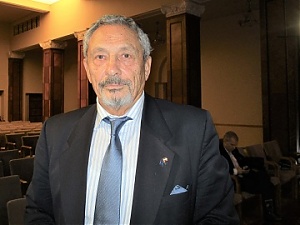Analytics, Ecology, Modern EU
International Internet Magazine. Baltic States news & analytics
Thursday, 25.04.2024, 07:59
Water usage: agro-irrigation and urban wastewaters
 Print version
Print version |
|---|
http://www.baltic-course.com/eng/modern_eu/?doc=152874.
Commission’s opinion
The Regulation proposed by the
Commission aims to alleviate water scarcity across the EU, in the context of
adapting to climate change. It will ensure that treated wastewater intended for
agricultural irrigation is safe, protecting citizens and the environment.
Commissioner for the Environment, Oceans and Fisheries, Virginijus Sinkevičius underlined that present “provisional agreement” provided the member states and the EU with a powerful tool to tackle some of the challenges posed by climate change. “Together with water savings and efficiency measures, the use of reclaimed water in the agriculture sector can play an important part in addressing water stress and drought, while fully guaranteeing citizens’ safety”, he added.
The proposal delivers on one of the
commitments of the Circular Economy Action Plan (published in December 2015),
and completes the existing EU legal framework on water and foodstuffs. It also
contributes to implementing the UN Sustainable Development Goals, SDGs in the
EU (in particular SDG-6 on water and sanitation), as well as contributing to
climate change mitigation and adaptation.
See: Communication
on “Closing the loop - An EU action plan for the Circular Economy” in: https://eur-lex.europa.eu/legal-content/EN/TXT/?uri=CELEX:52015DC0614
Urban wastewaters
Under the new legislation, treated
urban wastewaters, which have already undergone certain treatments under the
rules of the “Urban Wastewater Treatment Directive” from 1991 (in effect from
June 1993), would be subjected to further treatment to meet the new minimum
quality parameters and thus become suitable for use in agriculture.
Note:
“The member states shall by 31 December 1993
establish a programme for the implementation of this Directive. Member states shall
by 30 June 1994 provide the Commission with information on the programme. Member
states shall, if necessary, provide the Commission by 30 June every two years with
an update of this information. The Commission shall every two years review and assess
the information received” (art.17).
See: Council Directive 91/271/EEC of 21 May
1991 concerning urban waste-water treatment, in:
https://eur-lex.europa.eu/legal-content/EN/TXT/?uri=CELEX:31991L0271;
and
https://eur-lex.europa.eu/legal-content/EN/TXT/PDF/?uri=CELEX:31991L0271&from=EN
Besides the harmonised minimum
requirements, the new legislation also sets out harmonised minimum monitoring
requirements; risk management provisions to assess and address potential
additional health risks and possible environmental risks; and a permitting
procedure and provisions on transparency, whereby key information about any
water reuse project would be made publicly available.
The provisional agreement now has
to be formally approved by the European Parliament and the Council of the EU. Following
approval, the Regulation will be published in the EU's Official Journal and
enter into force 20 days later.
More information in:
- Water reuse proposal and annexes;
- Urban Wastewater Treatment Directive;
- Implementation of the
Circular Economy Action Plan policy page








 «The Baltic Course» Is Sold and Stays in Business!
«The Baltic Course» Is Sold and Stays in Business!

